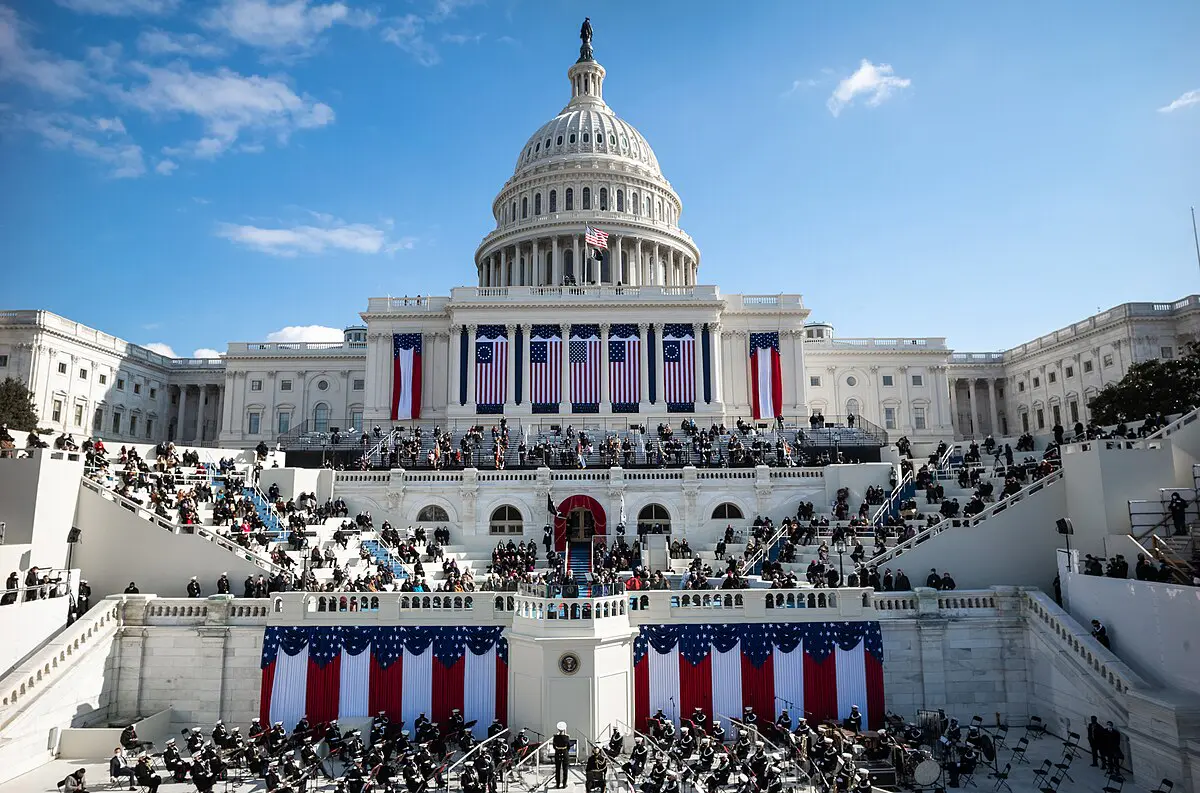When will Donald Trump take office as US president?
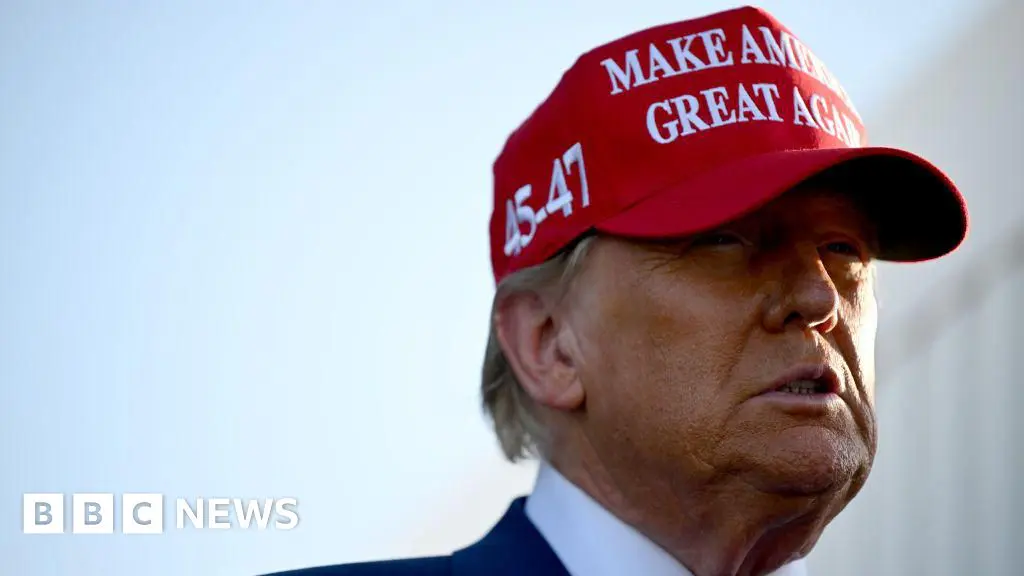
Republican Donald Trump will be the next US president, after he defeated Democrat Kamala Harris in November's election.
Trump previously served as US president between 2017 and 2021.
No. Trump is the president-elect and his running mate, JD Vance, is the vice-president- elect.
Trump will take office at the presidential inauguration on Monday, 20 January 2025.
At that point he will legally assume the role of president.
- A quick guide to Donald Trump
- Just how big was Donald Trump’s election victory?
- How Trump pulled off an incredible comeback
- The Trump family: A guide to an American dynasty
Trump met outgoing president, Joe Biden, at the White House - to symbolise the peaceful transfer of power.
He has spoken to world leaders including Canadian Prime Minister Justin Trudeau, UK Prime Minister Sir Keir Starmer and Ukrainian President Volodymyr Zelensky.
He has also met a number of influential business leaders at his Florida resort Mar-a-Lago, including Amazon founder Jeff Bezos, Meta's Mark Zuckerberg, OpenAI's Sam Altman, TikTok's Shou Zi Chew and Apple's Tim Cook.
Ahead of the inauguration, the president-elect and his team have received classified national security briefings covering current threats and ongoing military operations.
Trump has also nominated more than two dozen people to fill key roles, some of whom are controversial.
These include Fox News presenter and military veteran Pete Hesgeth as defence secretary. Since his nomination, Hesgeth has faced questions about his qualifications - and a past sexual assault allegation has surfaced. He denies any wrongdoing.
Trump's pick for health secretary is Robert F Kennedy Jr, who has repeatedly stated widely debunked claims about vaccine harm.
Trump nominated his long time ally Pam Bondi to be attorney general. His first choice, former Congressman Matt Gaetz, withdrew after facing intense scrutiny over allegations - which he denies - of wrongdoing, related to drugs, bribes and sex.
Trump's picks for cabinet roles must be approved by the US Senate.
Billionaire businessman Elon Musk will head up the newly-announced Department of Government Efficiency (Doge) alongside former Republican presidential candidate Vivek Ramaswamy, with a brief to cut spending and eliminate waste.
Doge will be an advisory body rather than an official government department, and Musk and Ramaswamy have said they will "serve as outside volunteers".
Trump has nominated two relatives: his daughter Tiffany's father-in-law, Massad Boulos, as an adviser on Arab and Middle Eastern affairs; and his other daughter Ivanka’s father-in-law Charles Kushner, to serve as ambassador to France.
He has nominated businessman Warren Stephens to be ambassador to the UK.
Separately, he appointed British TV executive Mark Burnett, who produced him on The Apprentice, as his special envoy to the UK.
Once every valid vote has been counted, a process known as the electoral college formally determines the election result.
In each state, a varying number of electoral college votes are up for grabs. It is securing the majority of these – and not the backing of voters themselves – that ultimately wins the presidency.
Generally, electoral college votes are given to whoever won the popular vote in each state.
This was the case when state electors met across the country on 17 December, with the final tally showing that Trump won 312 votes against Harris' 226, well above the 270 threshold.
The new US Congress will meet on 6 January to ratify the electoral college votes and confirm the new president. As outgoing vice-president, Kamala Harris will preside over this process.
It was this meeting of Congress that Trump supporters tried to stop in 2021, when they marched on the US Capitol after Trump refused to concede to Biden.
Trump will be sworn in as president during the inauguration ceremony at the Capitol on 20 January. He will take the oath of office and then deliver his first speech as president, known as the inaugural address.
Trump did not go to Biden's inauguration in 2021. However, the White House has confirmed that Biden will attend Trump's swearing-in.
The 22nd Amendment of the US Constitution prohibits anyone from holding presidential office three times.
This applies even if - as is the case with Trump - the two terms were not consecutive.
Theoretically the amendment wouldn't stop a former president from becoming vice-president in a future administration, but constitutional experts say this is extremely unlikely to happen.
- How Trump's new recruits will be vetted
- What Trump can and can't do on day one
- How undocumented migrants feel about deportations
- Can RFK Jr make America healthy again?
- How Trump plans to expand death row executions
- Donald Trump named Time magazine's Person of the Year again
North America correspondent Anthony Zurcher makes sense of US politics in his twice-weekly US Election Unspun newsletter. Readers in the UK can sign up here. Those outside the UK can sign up here.
When does Donald Trump take office? Inauguration Day 2025 dates to know, tickets
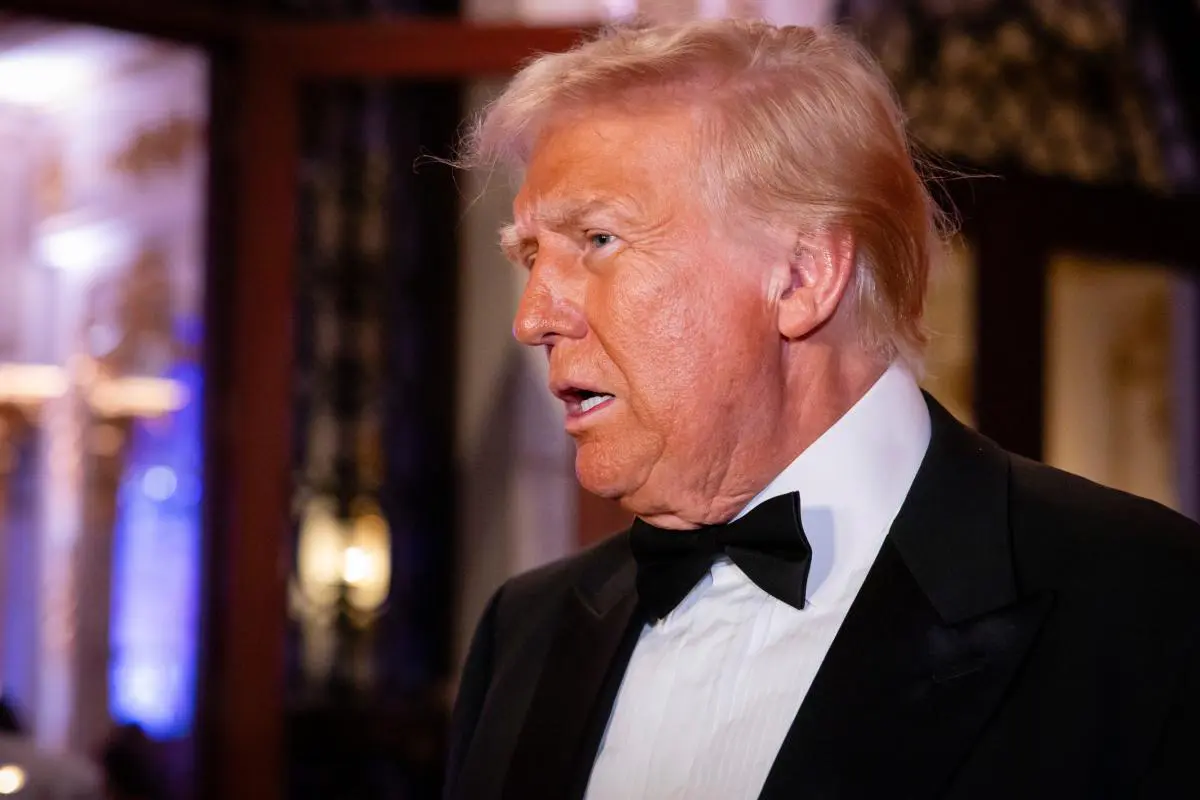
President-elect Donald Trump is returning to the White House this month.
After Trump won the 2024 election against Democrat Vice President Kamala Harris in November, his inauguration is set to occur in a matter of weeks. Trump becomes the second president in the U.S. to win two non-consecutive terms, following Grover Cleveland.
Trump will also be the third president sworn into office on Martin Luther King Jr. Day.
The only step between Trump’s inauguration is for Harris to count the votes on Jan. 6, alongside archivist of the United States Collen Shogan.
Here’s everything you need to know about how to watch the inauguration, whether live in D.C. or from your screens.
The final step of an election involves members of Congress counting the electoral votes that were voted on and turned in to Congress in December. These votes represent all the electorate votes of each state.
As president of the Senate and archivist of the United States, Kamala Harris and Collen Shogan, respectively, will oversee the vote count. After the effort to overturn the 2020 election, the Electoral Count Reform Act also introduced a series of reforms to this joint session.
These include a clarification that the vice president's role as president of the Senate is "ministerial" in overseeing the count, and the threshold for objections to a state's electoral slates was raised to one-fifth of each chamber.
Inauguration Day will occur on Monday, Jan. 20. The Inauguration traditionally happens on Jan. 20 following the November election. Unless Jan. 20 falls on a Sunday, which will reschedule the event for Jan. 21.
Per tradition, Vice President-elect JD Vance will be sworn in first, and Trump will recite the Presidential Oath at around 11 a.m. CT.
Similarly, because Martin Luther King Jr. Day is always celebrated on the third Monday of January, this marks the third time a president has taken the Oath of Office on the holiday and the first exchange of power.
The Joint Congressional Committee on Inaugural Ceremonies offers a limited number of inauguration tickets to the public through members of Congress. Tickets are free and allow you to watch the proceedings from the U.S. Capitol.
Tickets will be available by asking your Congressional members in the weeks leading up to the inauguration.
This article originally appeared on Oklahoman: When does Trump take office in 2025? How to watch inauguration events
When will Trump take office as president? Here's when he'll officially be sworn in
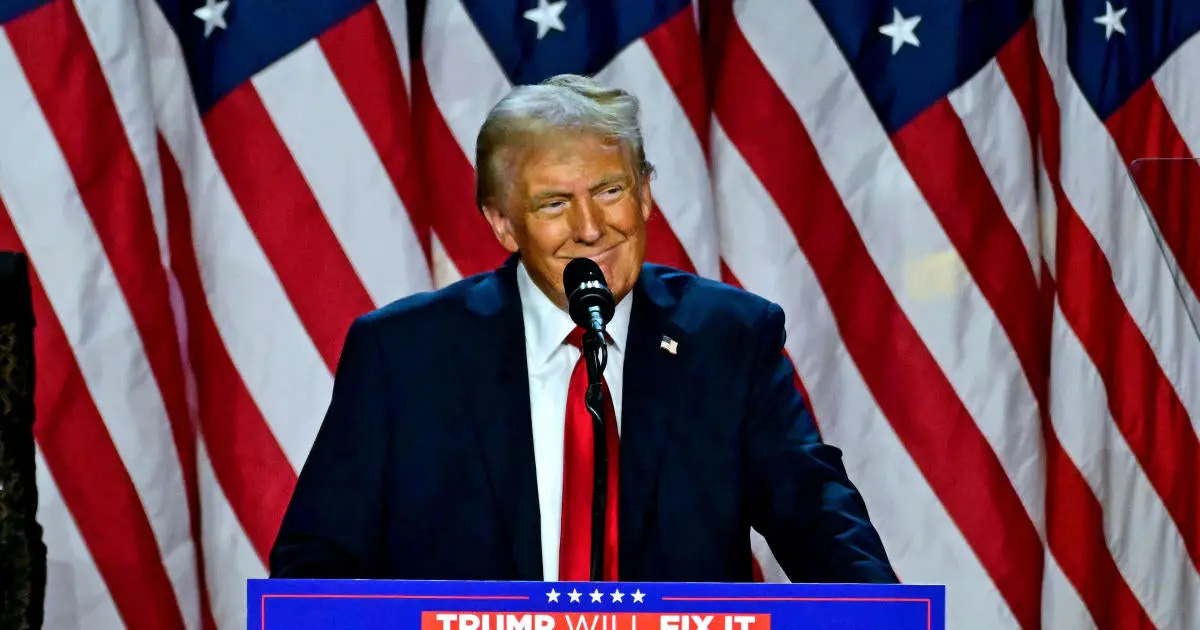
President-elect Donald Trump is the projected winner of the 2024 election, besting Vice President Kamala Harris for the highest office in the land.
CBS News projected the former president will win multiple battleground states. As of Wednesday morning, Trump was also ahead in the popular vote, something that eluded him in 2016.
Although Trump was projected the winner early Wednesday, Nov. 6, it will be several months before Trump takes office. Here's what to know about when he will be sworn in.
President-elect Trump will be sworn in at his inauguration. The presidential inauguration is always held on Jan. 20, as specified by the Constitution's 20th Amendment.
The president-elect becomes the president immediately after being sworn in. The new president typically moves into the White House after the ceremony.
Trump has vowed to end the war in Ukraine before Inauguration Day, but he has no presidential powers before being sworn in. He has made a number of promises for his presidency, including ending ObamaCare and beginning mass deportations of migrants. In his closing message the night before Election Day, Trump promised greatness if he won.
"After all we have been through together, we stand on the verge of the four greatest years in American history," Trump said. "You watch, it's going to be so good, it's going to be so much fun. It'll be nasty a little bit at times, and maybe at the beginning, in particular, but it's going to be something."
The inauguration is about two and a half months after Election Day. It begins with a procession to the Capitol, according to the Joint Congressional Committee on Inaugural Ceremonies.
The vice president recites his oath of office and is sworn in first. Around noon, the president recites his own oath of office and is sworn in.
Then, the president gives an inaugural address. The speech usually outlines a president's vision and goals for their term. At his first inauguration, Trump said he was planning on "transferring power from Washington, D.C. and giving it back to you, the American people."
After the speech, the previous president makes an honorary departure from the Capitol. That's followed by a signing ceremony, where the new president signs their first official actions. That's followed by a number of ceremonies.
The final traditional event of the inauguration is the pass-in review, when the president and vice president review military troops before leading a procession of ceremonial military regiments, citizens' groups, floats and marching bands from the Capitol to the White House.
The president-elect recites this oath, as required by the U.S. Constitution, ahead of being sworn in, according to the Congressional committee:
"I do solemnly swear (or affirm) that I will faithfully execute the Office of President of the United States, and will to the best of my ability, preserve, protect and defend the Constitution of the United States."
The vice presidential oath of office is the same as the vow taken by senators, representatives, and other federal employees, according to the Congressional committee:
"I do solemnly swear (or affirm) that I will support and defend the Constitution of the United States against all enemies, foreign and domestic; that I will bear true faith and allegiance to the same; that I take this obligation freely, without any mental reservation or purpose of evasion; and that I will well and faithfully discharge the duties of the office on which I am about to enter: So help me God."
Biden will attend Trump's inauguration in January, White House says
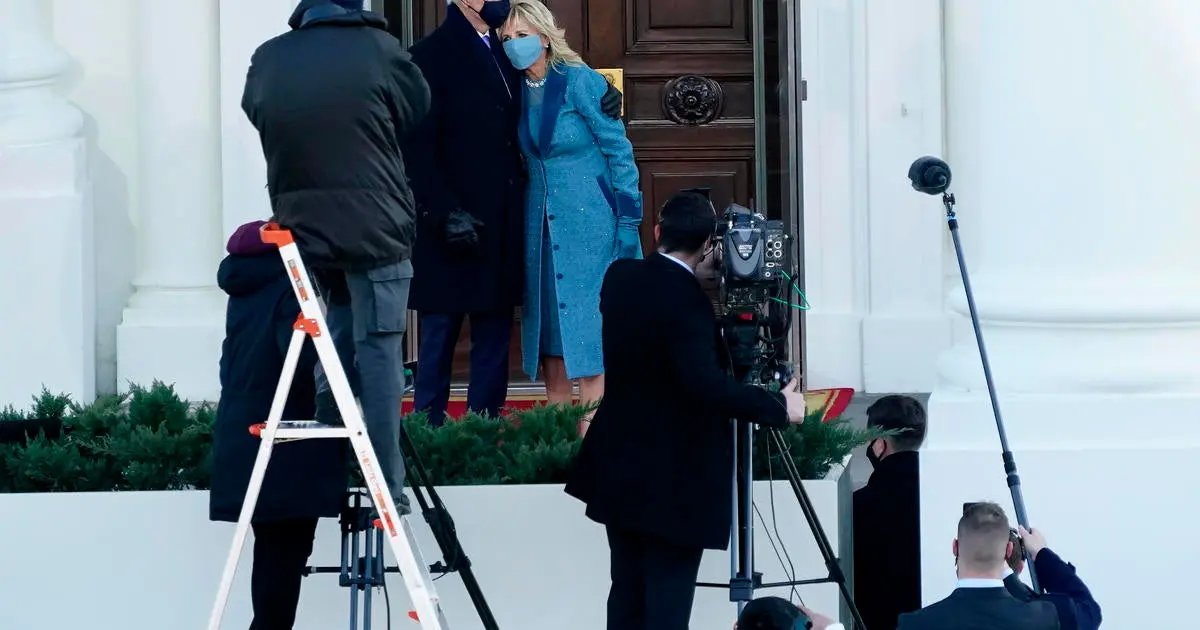
President Biden and first lady Jill Biden will attend President-elect Donald Trump's inauguration on Jan. 20, the White House said Monday.
Before the election, Mr. Biden said he would attend, regardless of who won. Trump did not attend Mr. Biden's 2021 inauguration, which took place two weeks after Trump's supporters stormed the Capitol ahead of the certification of the election results. Trump was the first president in more than 150 years to not attend his successor's inauguration.
Aboard Air Force One on Monday, White House spokesman Andrew Bates confirmed that Mr. Biden and the first lady will attend the inauguration.
"The president promised that he would attend the inauguration of whomever won the election," Bates said. "He and the first lady are going to honor that promise and attend the inauguration. He views that as an important demonstration of commitment to our democratic values, and to honoring the will of the people, as we continue to provide an orderly and effective transition."
White House chief of staff Jeff Zients has met multiple times with incoming White House chief of staff Susie Wiles, Bates said.
But the president-elect's team has not yet signed critical agreements with the Biden administration to officially move the transition forward, holding up the security clearance process. Bates said the Trump transition team has not entered into agreements with the White House or the General Services Administration.
White House: Biden will attend Trump's inauguration in January
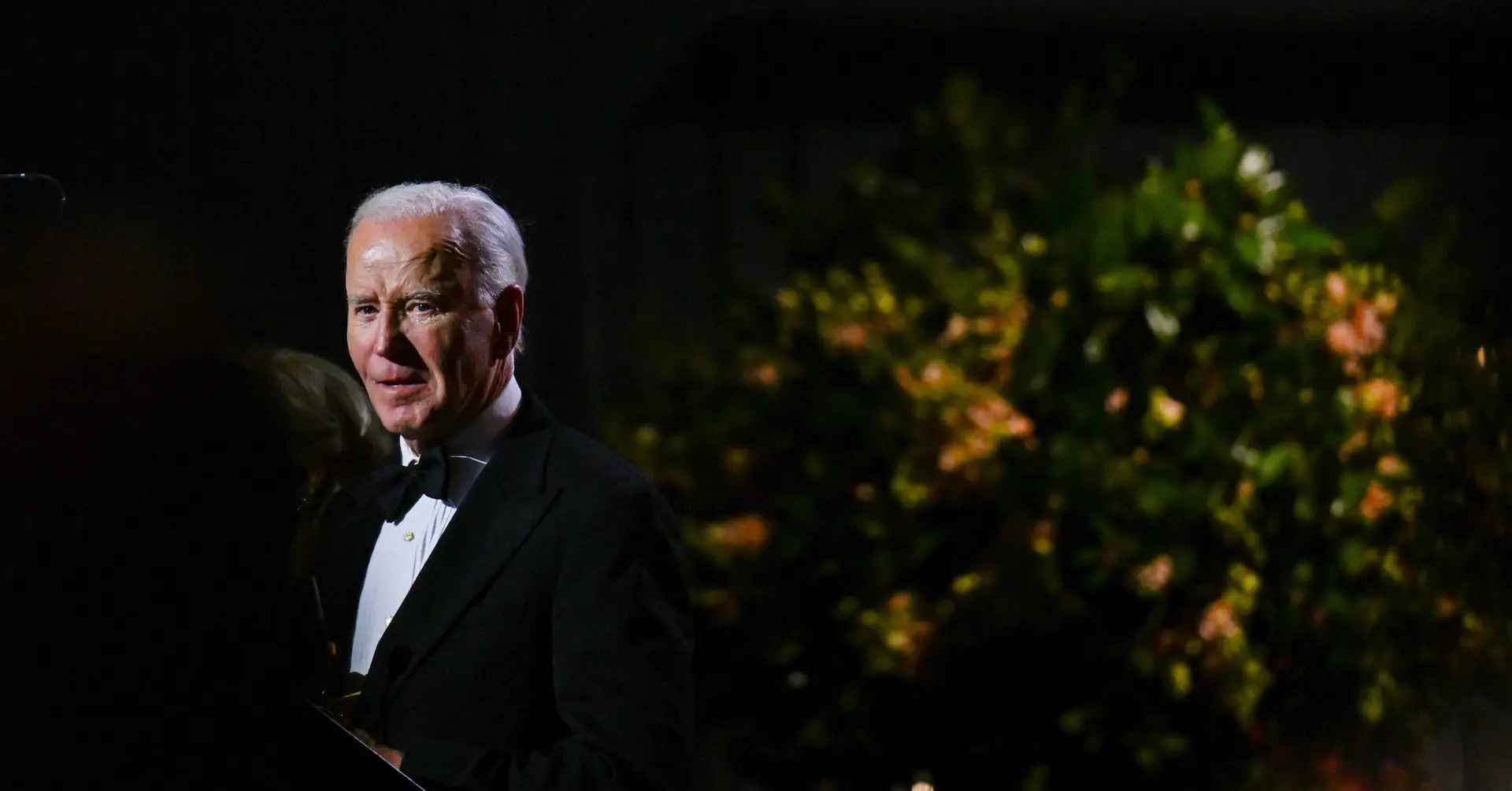
ABOARD AIR FORCE ONE, Nov 25 (Reuters) - President Joe Biden and First Lady Jill Biden will attend President-elect Donald Trump's inauguration in January, a White House spokesman said on Monday.
"The president promised that he would attend the inauguration of whomever won the election," said Andrew Bates, senior deputy press secretary at the White House. "He and the First Lady are going to honor that promise and attend the inauguration."
A new Donald Trump era: Congress to certify election victory four years after Jan. 6 riot
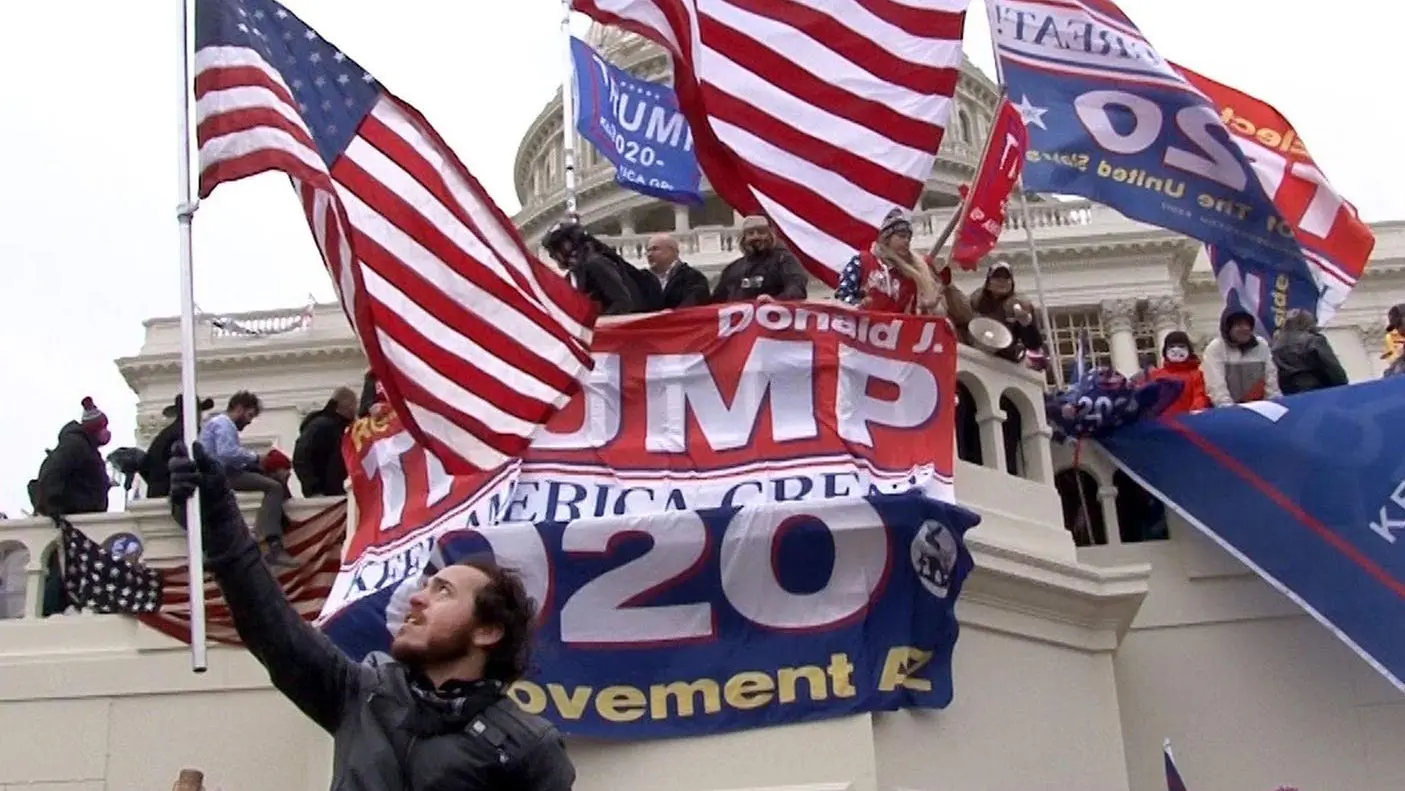
WASHINGTON – No one expects an angry mob to show up this time.
Four years to the day that supporters of Donald Trump attacked the U.S. Capitol and tried to halt the certification of the 2020 election, Congress will usher in a new Trump era on Monday when it gathers to count each state’s electoral votes and officially declare him the winner of last year’s presidential contest.
This time, the proceeding is expected to go off smoothly. No rioters storming the Capitol. No one pushing past police barricades and beating officers with makeshift weapons. No lawmakers running through the Capitol’s corridors in fear of their lives. No sitting president pressuring a vice president to thwart the process.
“I think it will almost be a nonevent,” predicted Sen. Richard Blumenthal, D-Conn.
The difference between then and now is Trump.
Four years ago, the Republican refused to acknowledge he lost to Democrat Joe Biden, claiming the 2020 election was tainted by widespread fraud.
On Jan. 6, 2021, the day Congress was to certify the results of that election, Trump held a rally on the Ellipse with the White House in the background and urged thousands of his supporters to march down Pennsylvania Avenue to the Capitol and “fight like hell.” They did, setting in motion the most violent attack against the seat of government since the War of 1812.
But Trump eagerly embraced the results of last year’s election after he won both the popular vote and the Electoral College over the Democratic nominee, Vice President Kamala Harris. Though Trump had again warned of the possibility of election fraud, he went suddenly silent about those dire predictions after his victory.
Heightened security:Security measures pick up around DC ahead of Jan. 6, Carter funeral, Trump Inauguration Day
Congressional Democrats are not expected to challenge the election results when they gather to certify them on Monday.
“I think it’s safe to say that even the Democrats heard from the American people that this is what they wanted,” said Sen. Markwayne Mullin, R-Okla.
Even so, hanging over the certification process will be unsettling memories of the assault on the Capitol, uncertainty over whether Trump will follow through on his promise to pardon those involved and questions of how the Jan. 6, 2021 attack will be viewed through the broader lens of history.
“For a significant chunk of the population, including me, it will be remembered as a frightening attempt to use force to overrule the results of a presidential election,” said Alexander Keyssar, a Harvard professor who taught a class on the Jan. 6 attacks.
For a different segment of the population, “it may be remembered as a day of courage and heroism,” Keyssar said.
Either way, Trump, who was impeached twice during his first term, will immediately earn a couple of places in the history books when he begins his second term on Jan. 20. He will be the first president since Grover Cleveland to leave office in defeat and return four years later. He also will become the first president to enter office with a criminal record after his conviction in New York last May on 34 felonies involving hush-money payments to a porn star.
Trump was indicted on federal charges tied to his mishandling of classified documents after he left office and his efforts to overturn the 2020 election leading up to the attack on the Capitol. But three weeks after last year’s election, a judge acting on the request of special counsel Jack Smith dismissed the charges that Trump tried to steal the election in 2020. Smith also effectively ended the classified documents case by dropping his appeal of a separate judge’s dismissal of those charges.
Federal prosecutors did win the conviction of more than 1,000 people who were involved in the Jan. 6 attack. At least 645 were jailed and another 145 were serving home detention as of Dec. 6, according to the Justice Department.
Trump has vowed repeatedly for years to pardon defendants charged in the attack, leading some to ask judges to postpone trials, sentencings or incarceration until after he is inaugurated.
Some defendants have asked permission to attend the inauguration while awaiting trial.
Tommy Tatum of Mississippi, who was charged with using a flagpole to intimidate police at the Capitol, asked the court to let him travel to Washington on Jan. 6 to attend a news conference and on Jan. 20 to attend the inauguration.
“The Government is punishing Mr. Tatum by preventing him from attending a press conference as a journalist and from expressing his support for President Trump by attending his inauguration, clearly in violation of Mr. Tatum’s First Amendment rights,” Tatum’s lawyers wrote in their request.
“There is no legitimate government objective to prevent Mr. Tatum from visiting D.C.,” the lawyers argued.
U.S. District Judge John Bates of the District of Columbia denied Tatum’s request, saying his alleged conduct on Jan. 6 was “particularly violent.”
The travel restriction is necessary to ensure community safety, Bates wrote.
Trump hasn’t spelled out what he will do. He voiced sympathy during the campaign for nonviolent offenders and decried long sentences. But he hasn’t detailed how he would weigh pardons for nearly 1,600 people charged and 1,000 people convicted in the riot, which has left his allies and critics waiting to see what he will do on his first day in office.
“The moment we win, we will rapidly review the cases of every political prisoner unjustly victimized by the Harris regime, and I will sign their pardons on Day One,” he told a Wisconsin rally in September.
For Trump, pardoning the defendants would amount to the concluding chapter of the Jan. 6 saga, said Julian Zelizer, a history professor at Princeton University and the author of a book on Trump’s first term as president.
“He survived all the prosecutions, and he survived the electoral threat that that posed to his future and to the MAGA future,” Zelizer said. “Then he won reelection, and he won it with the popular vote and with all the swing states. A pardon is the final step, saying, ‘You’re free.’”
Congressional Democrats warn pardoning those involved in the Jan. 6 insurrection would send the wrong message.
“The pardon power should be used to correct procedural or substantive injustices,” said Rep. Jamie Raskin, D-Md., and a former professor of constitutional law.
“No one has identified any injustice in the prosecution of people who violently assaulted police officers, who were engaged in seditious conspiracy, which means conspiracy to overthrow the government of the United States,” Raskin said. “I would view the promise of pardoning hundreds of convicted insurrectionists as a continuation of the assault on American constitutional democracy.”
Rep. Seth Magaziner, D-R.I., said granting a pardon to the Jan. 6 defendants, particularly those who committed acts of violence, would send a signal that “violent law-breaking will be allowed as long as it is done under a MAGA banner.”
“That would open the floodgates to chaos all across the country because there will be a whole lot of people out there, including deranged and violent individuals, who think that Donald Trump will give them a ‘Get Out of Jail Free’ card,” Magaziner said.
Magaziner said he recognizes the vast majority of Trump supporters are peaceful, patriotic Americans, “but we're not talking about peaceful patriotic Americans when we talk about the Jan. 6 rioters. We’re talking about criminals and many of whom committed acts of violence.”
For some lawmakers, Trump’s threats to investigate, prosecute and imprison his perceived enemies are another cause for alarm. During a December interview with NBC’s “Meet the Press,” Trump said members of a congressional committee that spent 18 months investigating his role in the Jan. 6 insurrection should go to jail.
That’s not how government works, Raskin said.
“The whole point of the American Constitution is we have no kings here,” Raskin said. “We have no monarchs. We have no queens, no emperors. We don't put people in jail because the president doesn't like them.”
Honoring the investigators:Biden gives Jan. 6 committee leaders Cheney, Thompson Presidential Citizens Medals
Trump’s return to power will likely result in a revisionist history in terms of how Jan. 6 is remembered among a segment of the American electorate, Keyssar said. In Trump’s view and that of many of his supporters, he said, Trump's victory in November validated many of his grievances about the 2020 election.
“There's a large segment of the American population which equates democracy as the protection of the rights and powers for some people but not others – and, thus, it was legitimate to have this attack on the (election) procedures because the procedures were leading to the wrong outcome,” Keyssar said.
In many ways, Keyssar said, it’s reminiscent of how regional differences shaped Americans’ understanding of the Civil War for more than a century and, in some cases, even today.
“In the South,” he said, “they continue to call it the war of northern aggression.”
Trump to be sentenced in hush money case on 10 January
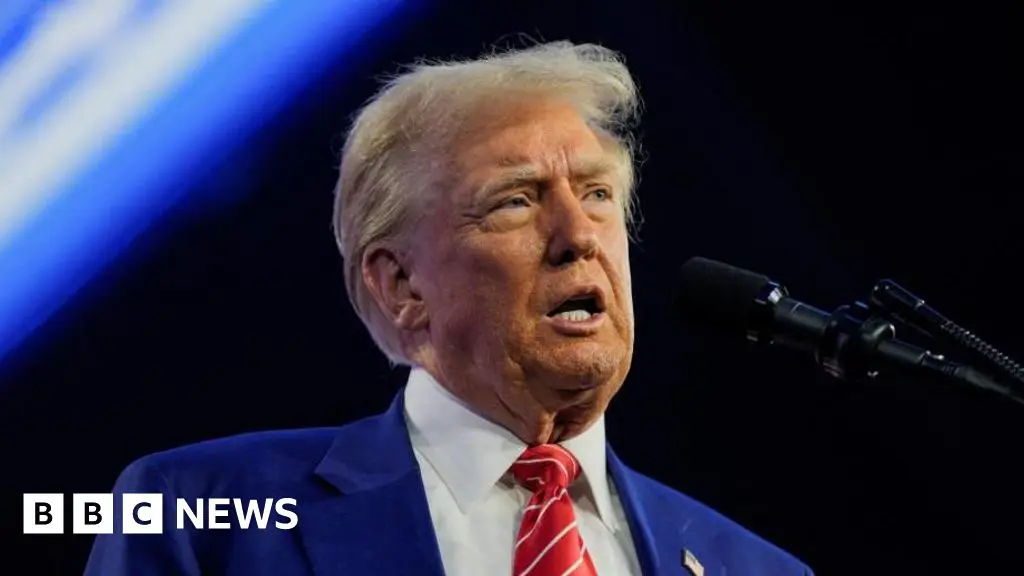
A judge has ordered that Donald Trump will be sentenced on 10 January in his hush-money case in New York - less than two weeks before he is set to be sworn in as president.
New York Justice Juan Merchan signalled he would not sentence Trump to jail time, probation or a fine, but instead give him an "unconditional discharge", and wrote in his order that the president-elect could appear in person or virtually for the hearing.
Trump had attempted to use his presidential election victory to have the case against him dismissed.
The president-elect has posted on social media dismissing the judge's order as an "illegitimate political attack" and calling the case "nothing but a rigged charade".
Trump was convicted in May of 34 felony counts of falsifying business records related to a $130,000 (£105,000) payment to adult-film star Stormy Daniels.
The charges related to attempts to cover up reimbursements to his ex-lawyer, Michael Cohen, who in the final days of the 2016 election campaign paid off the adult-film star to remain silent about an alleged sexual encounter with Trump.
The president-elect has denied all wrongdoing and pleaded not guilty, arguing the case was an attempt to harm his 2024 presidential campaign.
In the post on his Truth Social platform on Saturday Trump said the judge's sentencing order "goes against our Constitution and, if allowed to stand, would be the end of the Presidency as we know it".
Trump's spokesperson Steven Cheung earlier called the order part of a "witch hunt".
"President Trump must be allowed to continue the presidential transition process and to execute the vital duties of the presidency, unobstructed by the remains of this or any remnants of the witch hunts," Cheung said.
"There should be no sentencing, and President Trump will continue fighting against these hoaxes until they are all dead."
In his latest motion against the case, Trump had argued the case would hang over him during his presidency and impede his ability to govern.
Justice Merchan said he had been advised of several measures he could employ that could assuage Trump's concerns about being distracted by a criminal case while serving as president that fell short of the "extreme remedy" of overturning the jury's verdict.
His options included delaying the sentencing until Trump, 78, leaves the White House in 2029, or guaranteeing a sentence that would not involve prison time.
Trump had initially, and unsuccessfully, argued the case against him ran afoul of a Supreme Court ruling on presidential immunity.
In July, the country's top court ruled that presidents have broad immunity from criminal prosecution for "official actions" they take while in office.
However, last month Justice Merchan ruled Trump's hush money conviction was valid.
Trump is currently set to be the first convicted felon to serve in the White House.
He may attempt to appeal against the conviction after the sentencing.
While falsifying business records is punishable by up to four years in prison in the US, there is no minimum sentence and incarceration is not required.
Even before his election victory, legal experts thought it was unlikely Trump would face jail time given his age and his legal record.
Trump has also been charged in three other state and federal criminal cases: one involving classified documents and two relating to his alleged efforts to overturn his loss in the election of 2020.
The president-elect was initially scheduled to be sentenced on 26 November, but Justice Merchan pushed the date back after Trump won the presidential election.
Judge orders Trump to be sentenced in hush money case on Jan. 10, but says he won't be incarcerated
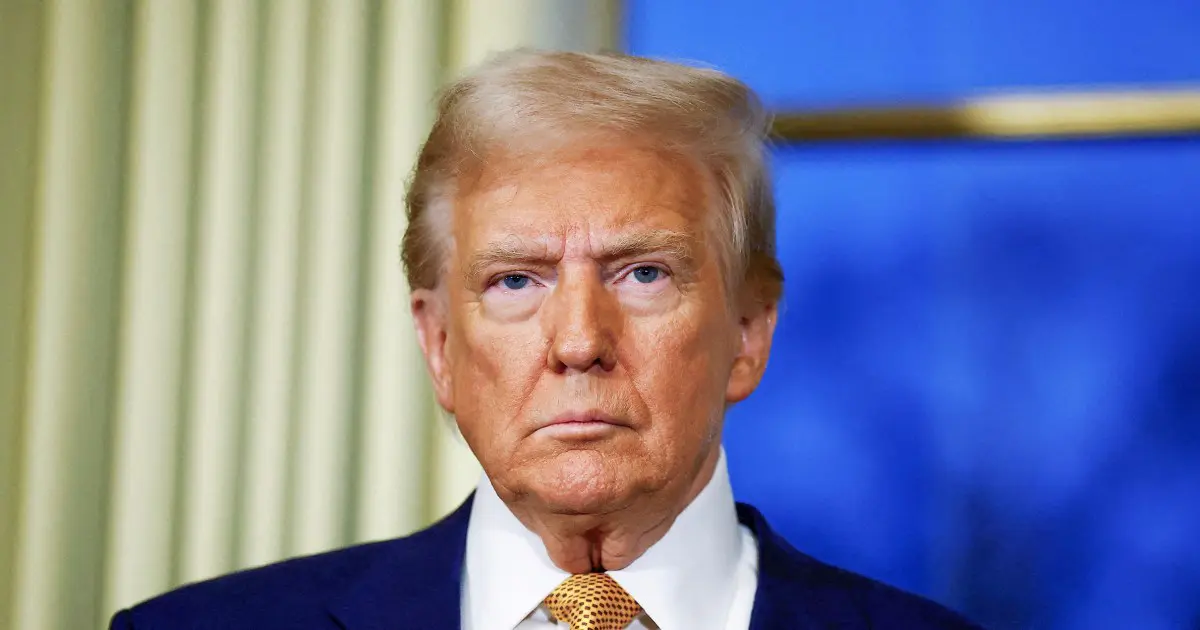
The judge presiding over the hush money case against President-elect Donald Trump on Friday denied his bid to dismiss the case and said he'll sentence him on Jan. 10, ten days before his inauguration as the 47th president.
Judge Juan Merchan said Trump can appear in person or virtually for the sentencing, and that he won't order Trump jailed.
“While this Court as a matter of law must not make any determination on sentencing prior to giving the parties and Defendants opportunity to be heard, it seems proper at this juncture to make known the Court’s inclination to not impose any sentence of incarceration, a sentence authorized by the conviction but one the People concede they no longer view as a practicable recommendation,” the judge wrote in his ruling.
Merchan said that "a sentence of an unconditional discharge appears to be the most viable solution to ensure finality and allow Defendant to pursue his appellate options." Such a sentence would allow the conviction to stand but without Trump being fined, locked up or having to serve probation.
The judge denied Trump's request to vacate the verdict.
"Here, 12 jurors unanimously found Defendant guilty of 34 counts of falsifying business records with the intent to defraud, which included an intent to commit or conceal a conspiracy to promote a presidential election by unlawful means," he wrote.
Trump was convicted in May of falsifying business records related to a hush money payment his then-attorney Michael Cohen paid to adult film star Stormy Daniels in the closing days of the 2016 presidential election.
"It was the premediated and continuous deception by the leader of the free world that is the gravamen of this offense," Merchan wrote.
"To vacate this verdict on the grounds that the charges are insufficiently serious given the position Defendant once held, and is about to assume again, would constitute a disproportionate result and cause immeasurable damage to the citizenry's confidence in the Rule of Law," the judge added.
Trump lambasted the judge, the ruling and the case overall in posts to Truth Social on Friday night.
"This illegitimate political attack is nothing but a Rigged Charade," he argued, going on to claim that the judge's order "would be the end of the Presidency as we know it."
"It is time to end the Lawfare once and for all," Trump added in a separate post, using his preferred term for cases he believes are politically motivated.
Trump spokesperson Steven Cheung called the ruling "a direct violation of the Supreme Court’s Immunity decision and other longstanding jurisprudence. This lawless case should have never been brought and the Constitution demands that it be immediately dismissed."
"There should be no sentencing, and President Trump will continue fighting against these hoaxes until they are all dead,” he added.
It's unclear whether Trump plans to appear for the sentencing, either in person or virtually. The judge left open the possibility of sentencing him when his term in office is done — an alternative that had been suggested by Manhattan District Attorney Alvin Bragg's office.
Merchan said he found that option "less desirable than imposing sentence prior to January 20, 2025. The reasons are obvious. However, if the Court is unable to impose sentence before Defendant takes his oath of office, then this may become the only viable option."
The DA's office declined to comment.
Merchan denied another bid to dismiss the case last month, when Trump argued he was already protected by presidential immunity given his status as president-elect.
Trump was initially scheduled to be sentenced in the case back in July, but the proceeding was delayed multiple times at the request of Trump's lawyers, first because of a Supreme Court ruling that created a new standard for presidential immunity and later because of Trump's election win.
Four years after his supporters invaded the US Capitol, Trump is more powerful than ever
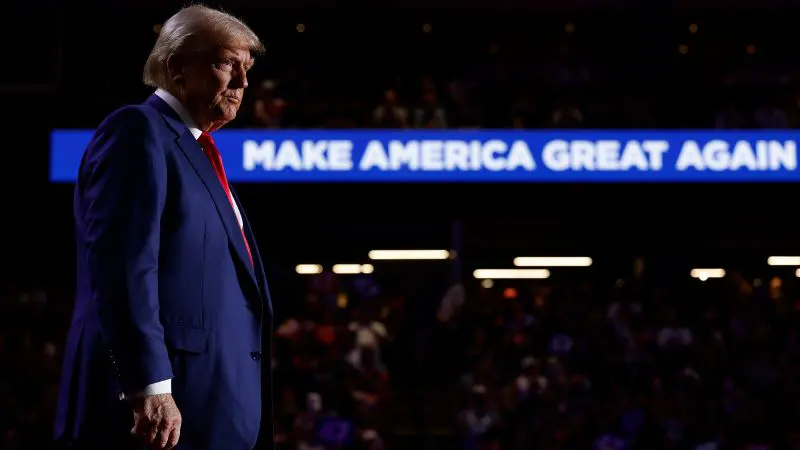
Late on a day of chaos and blood on January 6, 2021, it was unimaginable that Donald Trump — who summoned a mob to Washington and told the crowd to “fight like hell” — would get anywhere near the presidency again.
Yet on Monday, exactly four years after his supporters invaded the US Capitol, beat up police officers and interrupted the certification of President Joe Biden’s 2020 victory, Congress will convene to again confirm another election.
The democracy that Trump tried to desecrate will enshrine his return to power.
A joint session of Congress to count the electoral votes from his November victory will rekindle chilling memories of the horror and fear felt by anyone who was in the US Capitol four years ago.
The ceremonial process that will clear the way for Trump’s swearing in as the 47th president in two weeks will also highlight an extraordinary moment in political history in a nation where Trump is more powerful and popular than he’s ever been. A plurality of voters decided that despite his egregious conduct four years ago, he was the best option to lead the country until January 2029.
January 6, 2025, will mark the most stunning political comeback in US history, and will usher in a new administration that could feature the president-elect’s most extreme stress test of the Constitution so far.
It will also underscore the Democratic Party’s failures in convincing voters that Trump represents a mortal threat to the country’s democracy and that they had the answers to Americans’ economic struggles and concerns over immigration.
Americans made a choice in November, and even though he conjured a day of infamy four years ago, they picked Trump.
The congressional certification of Trump’s victory — over which his vanquished opponent, Vice President Kamala Harris, will preside — will reward an extraordinary effort by the ex-president, his supporters and the conservative media machine to whitewash what happened on one of the darkest in US history.
Trump, with a storm of misinformation, has convinced millions of Americans of his lie about the 2020 election being stolen. Republicans have rebranded the January 6 rioters as “tourists,” persecuted victims and heroes, despite the hundreds of convictions handed down by courts. Trump has promised to pardon those found guilty over the attack. He launched his 2024 campaign with a recording of the National Anthem by the “J6 choir,” sung by prisoners jailed for their role in the riot. And he rebranded January 6, 2021, a “beautiful day” and a “day of love.”
This could hardly be more misleading. The truth of January 6 was told in shocking details by witnesses and law enforcement officers to a congressional select committee when the House was still under Democratic control. “It was carnage. It was chaos,” said Caroline Edwards, a Capitol Police officer whose testimony was interspersed with footage of her being knocked unconscious by Trump’s supporters and who described slipping on the spilled blood of her colleagues. “I am not combat trained, and on that day it was just hours of hand-to-hand combat,” Edwards said in June 2022.
While this was unfolding, senators and representatives were running for their lives, Trump’s supporters breached the Senate chamber and Secret Service agents hustled then-Vice President Mike Pence to safety as the crowd chanted for him to be hanged.
But by shrugging off his second impeachment over January 6, 2021, reestablishing his dominance over the GOP and winning a subsequent election despite multiple criminal indictments, Trump avoided paying a meaningful political price for his assault on democracy. When he won a nonconsecutive second term, he went from being a political aberration to one of the most significant figures in American history. Along the way, he skillfully portrayed attempts to bring him to justice for his transgressions as persecution, creating a political rallying effect. He’ll return to the White House as an even more powerful leader, thanks to a Supreme Court ruling arising from one of his legal cases that gives the president substantial criminal immunity for official acts committed while in office.
Most profoundly, Trump will send a message down through the ages that a president who refuses to accept the result of a free and fair election and who incites an attack on the Capitol can get away with it — and regain power.
Yet, the process of certifying Trump’s election win will also be a reaffirmation of democracy. And Biden and Harris, in one of their final acts in office, are restoring a tradition of smooth handoffs between administrations denied to them by Trump.
Biden said Sunday this had been deliberate.
“If you notice, I’ve reached out to, to make sure the smooth transition. We’ve got to get back to the basic, normal transfer of power,” the president told reporters at the White House.
In a Washington Post op-ed published Sunday evening, he also warned of the dangers of forgetting what happened four years ago.
“An unrelenting effort has been underway to rewrite — even erase — the history of that day. To tell us we didn’t see what we all saw with our own eyes. To dismiss concerns about it as some kind of partisan obsession. To explain it away as a protest that just got out of hand,” Biden wrote without naming Trump.
“And we should commit to remembering Jan. 6, 2021, every year. To remember it as a day when our democracy was put to the test and prevailed. To remember that democracy — even in America — is never guaranteed,” he continued, adding that he has invited his successor to the White House on the morning of January 20 and that he will be attending Trump’s inauguration.
Unlike in 2020, the losers — this time, the Democrats — have not lied about election fraud, drawn up alternative slates of electors or called for a crowd to come to Washington to protest false claims of a stolen election.
“He led an insurrection, but the people have now voted and our job tomorrow, which is also January 6, is to implement the will of the people,” Democratic Sen. Amy Klobuchar told CNN’s Jake Tapper on “State of the Union” on Sunday. “It’s the peaceful transition of power. So, Democrats and Republicans will come together tomorrow to certify those results … that’s what we do. That’s what America has done, and that’s what we will do on the Inauguration Day.”
The electoral certification of Trump’s win will be a bitter moment for Democrats. And it will highlight the party’s painful reality that it couldn’t produce a candidate in 2024 to beat a twice-impeached, four-times-indicted, once-convicted ex-president who tried to burn down democracy to stay in power.
If the core purpose of Biden’s 2020 campaign was to purge Trump from American political life, then his presidency was a failure, whatever other achievements burnish his legacy. Biden’s decision to run for reelection, which came disastrously unstuck in a CNN debate that laid bare the brutal reality of his diminished capacity, helped set Democrats up for failure. And Harris’ inability to coin a convincing case for how she’d help Americans at a time of high prices and economic insecurity opened the door to Trump’s return to the Oval Office. She never sufficiently distanced herself from the Biden administration’s failure to secure the border or its insistence that an inflationary crisis was merely “transitory.”
Former House Speaker Nancy Pelosi said in an interview on CBS’ “Face the Nation” on Sunday that voters hadn’t ignored what happened on January 6, 2021, but had made a judgment on what was most important to them. “I wouldn’t say that the American people disregarded this. They just had a different view as to what was in their interest, economically and the rest,” the California Democrat said.
Trump, with his searing anti-immigration rhetoric, succeeded in painting his chaotic presidency as a kind of lost golden age, despite the scenes of violence and lawlessness that he conjured at its end
The country indisputably took a step to the right in the 2024 election, toward Trump’s populist nationalism, even in many blue-leaning districts and cities. Trump won all seven swing states and became the first Republican since 2004 to win the popular vote, even if he fell marginally below a majority of votes cast. His claims of a historic mandate are exaggerated, but that’s unlikely to thwart his promise to use power to mount a mass deportation of undocumented immigrants, wreak revenge on his political enemies and attempt a crackdown on the media. Republicans now control both the House and the Senate and will have the backstop of an often-supportive Supreme Court majority.
Trump’s triumph has left Democrats adrift, seeking a new message and wondering how they can connect with working Americans again. And the party is facing the reality that a plurality of voters preferred a former president who tried to destroy democracy to stay in power to their candidate. Sufficient voters seemed to decide that they’d prefer a strongman who better voiced their grievances than an alternative who warned that Trump was a threat to democracy.
With their warnings about Trump’s threat to constitutional values, Democrats found themselves in the position of defending a government and an establishment in which many Americans had lost faith, after years of foreign wars and the hollowing out of the blue-collar industrial economy.
This sense of the end of an ancient regime was reflected Saturday when Biden made the latest of his postelection jabs at Trump. He awarded Presidential Medals of Freedom to recipients whom many Democrats see as embodying the democratic order that Trump repudiates. They included former Secretary of State Hillary Clinton, who lost to Trump in 2016. Biden also posthumously recognized assassinated former Democratic presidential candidate Robert F. Kennedy, whose vaccine-skeptic son split with Democrats and his family and is Trump’s controversial choice to lead the Health and Human Services Department. He also awarded the medal to former Michigan Gov. George Romney, a Republican and the late father of former Utah Sen. Mitt Romney, one of Trump’s last and most prominent critics in the GOP.
After the ceremony, Biden implied that despite Trump’s imminent arrival in the White House, the fight to save democracy would go on. “Let’s remember, our sacred effort continues, and to keep going, as my mother would say, we have to keep the faith,” he said.
The party that once prided itself on defending global democracy has, however, long since moved on, profiting from its denial of the events of January 6, 2021, which has helped Republicans vault back to power.
Republican House Speaker Mike Johnson, keeping the gavel in a razor-thin victory on Friday, is already laying the groundwork to implement Trump’s ambitious agenda of strict immigration enforcement, tax cuts and slashes to the size of the federal government despite his tiny House majority.
Johnson has also changed his mind on the urgency of upholding the certification of electoral votes.
Four years ago, he was a key player in Trump’s attempts to subvert the result of a democratic election. Even after the bloody riot, the Louisiana Republican voted against the awarding of electoral votes to Biden in Pennsylvania and Arizona based on false claims of election fraud.
Now, however, he says nothing must get in the way of enshrining Trump’s win.
“We got a big snow storm coming to DC, and we encourage all of our colleagues, do not leave town, stay here, because, as you know, the Electoral Count Act requires this on January 6, at 1 p.m. so whether we’re in a blizzard or not, we are going to making sure this is done,” he told Fox News on Sunday.
“We cannot delay that certification.”
Trump must be sentenced in hush money case, judge signals no jail
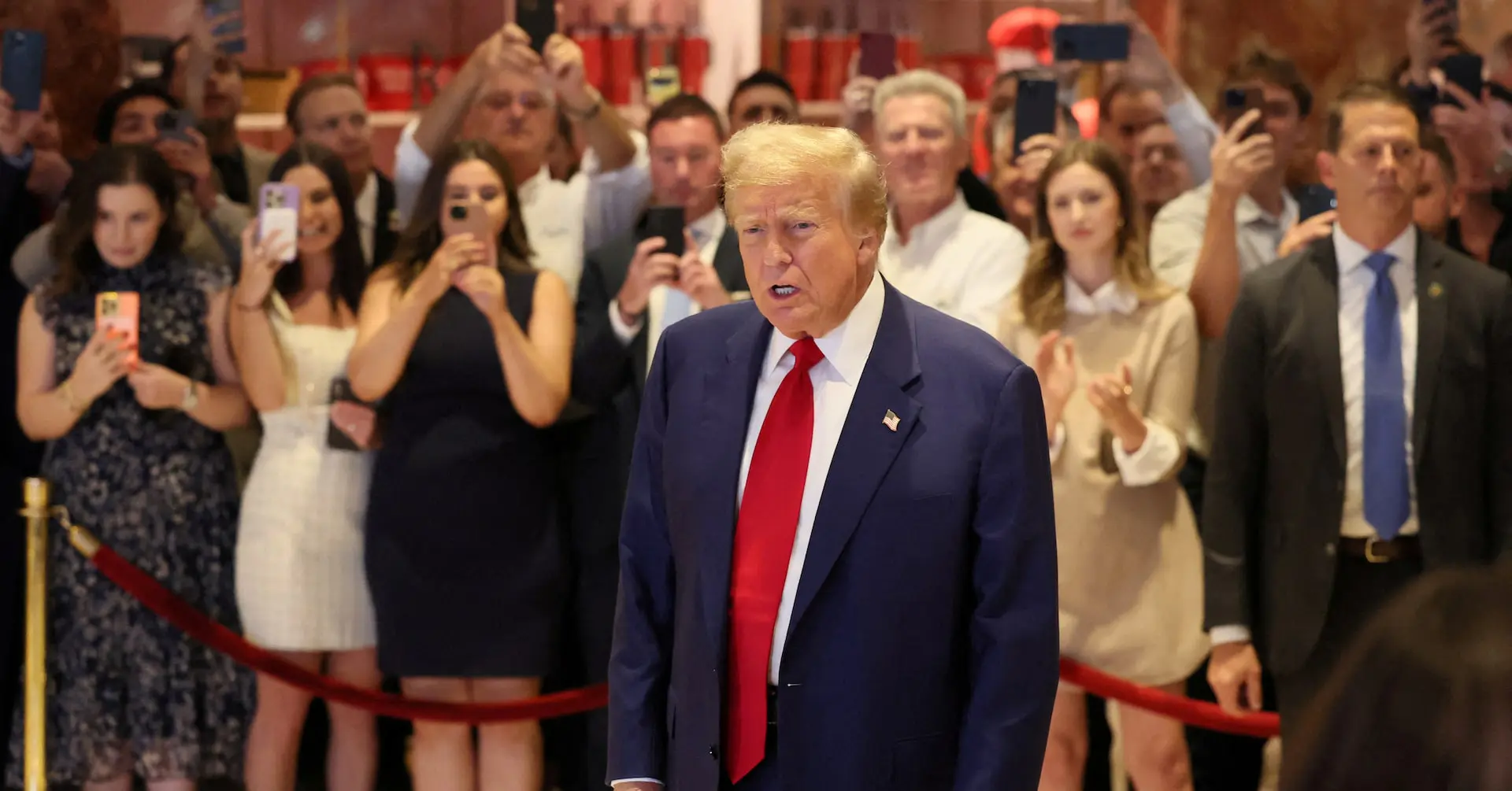
NEW YORK, Jan 3 (Reuters) - President-elect Donald Trump will be sentenced on Jan. 10 in the criminal case in which he was convicted on charges involving hush money paid to a porn star, but is unlikely to face jail time or other penalties, a judge said on Friday.
Justice Juan Merchan's ruling means Trump will be required to appear at a court hearing just 10 days before his Jan. 20 inauguration - an unprecedented scenario in U.S. history. Before Trump, no U.S. president - former or sitting - had been charged with or convicted of a crime.
The judge said Trump, 78, may appear at his sentencing either in person or virtually.
He wrote that he was not inclined to sentence Trump to jail, and that a sentence of "unconditional discharge" - meaning no custody, monetary fine, or probation - would be "the most viable solution."
The case stemmed from a $130,000 payment Trump's former lawyer Michael Cohen made to adult film actor Stormy Daniels to keep her quiet about a sexual encounter she said she had with Trump, who denies it. A jury in May found Trump guilty of falsifying records to mask the payment prior to the 2016 election.
The imposition of the sentence would pave the way for Trump to appeal. Merchan acknowledged in his ruling that Trump has made clear he intends to appeal.
In a post on his Truth Social network early on Saturday, Trump said he never falsified business records.
"It is a fake, made up charge by a corrupt judge who is just doing the work of the Biden/Harris Injustice Department," Trump wrote. "He created a case where there was none."
Merchan announced his plan for the sentencing in denying Trump's motion to dismiss the case due to his presidential election victory. Trump's defense lawyers had argued that having the case hang over him during his presidency would impede his ability to govern.
Merchan rejected that argument, writing that setting aside the jury's verdict would "undermine the Rule of Law in immeasurable ways."
"Defendant's status as President-elect does not require the drastic and 'rare' application of (the court's) authority to grant the (dismissal) motion," Merchan wrote in the decision , opens new tab.
Merchan also rejected Trump's argument in a Dec. 3 court filing that dismissal was warranted because his "civic and financial contributions to this city and the Nation are too numerous to count."
While acknowledging Trump's service as president, the judge said Trump's public statements excoriating the justice system were also a factor for him in determining how Trump's character would factor into the decision.
Merchan criticized what he called Trump's "unrelenting and unsubstantiated attacks" against the integrity of the criminal proceeding, and noted that he had found him guilty of 10 counts of contempt during the trial for repeatedly violating an order restricting out-of-court statements about witnesses and others.
"Defendant has gone to great lengths to broadcast on social media and other forums his lack of respect for judges, juries, grand juries and the justice system as a whole," Merchan wrote.
"Defendant's character and history vis-a-vis the Rule of Law and the Third Branch of government must be analyzed," the judge said, referring to the judiciary. "In that vein, it does not weigh in his favor."
A Manhattan jury in May found Trump guilty of 34 counts of falsifying business records to cover up the payment to Daniels. He had pleaded not guilty and called the case an attempt by Manhattan District Attorney Alvin Bragg, the Democratic prosecutor who brought the charges, to harm his 2024 campaign.
Trump's sentencing was initially scheduled for July 11, 2024, but has been pushed back several times. On Thursday, Merchan said Trump's request in August that the sentencing be pushed back until after the election implied that he consented to being sentenced during the transition period.
"Any claim Defendant may have that circumstances have changed as a result of Defendant's victory in the Presidential election, while convenient, is disingenuous," Merchan wrote.
Bragg did not oppose delaying the sentencing until after the election. Merchan in September pushed it back to Nov. 26.
After Trump defeated Democratic Vice President Kamala Harris in the Nov. 5 election, the judge delayed the sentencing indefinitely to figure out next steps.
Bragg's office had argued there were measures short of the "extreme remedy" of overturning the jury's verdict that could assuage Trump's concerns about being distracted by a criminal case while serving as president, such as delaying the sentence until after Trump leaves the White House in 2029.
Merchan wrote on Thursday he found that alternative "less desirable" than sentencing Trump before the inauguration.
Trump on Dec. 16 lost a separate bid to toss the hush money conviction in light of the U.S. Supreme Court's July 1 decision that presidents cannot be criminally prosecuted over their official actions, and that evidence of their official actions cannot be presented in criminal cases over personal conduct.
In denying Trump's motion to dismiss, Merchan said the prosecution over "decidedly personal acts of falsifying business records poses no danger of intrusion on the authority and function of the executive branch."
Falsifying business records is punishable by up to four years in prison, but incarceration is not required. Before his election victory, legal experts said it was unlikely Trump would be locked up due to his lack of a criminal history and advanced age.
Trump was charged in three other state and federal criminal cases in 2023: one involving classified documents he kept after leaving office and two others involving his efforts to overturn his 2020 election loss.
He pleaded not guilty in all three cases. The Justice Department moved to dismiss the two federal cases after Trump's election victory.
Trump's state criminal case in Georgia over charges stemming from his effort to overturn his 2020 election loss in that state is in limbo.
Trump to be sentenced for conviction in New York "hush money" case before inauguration
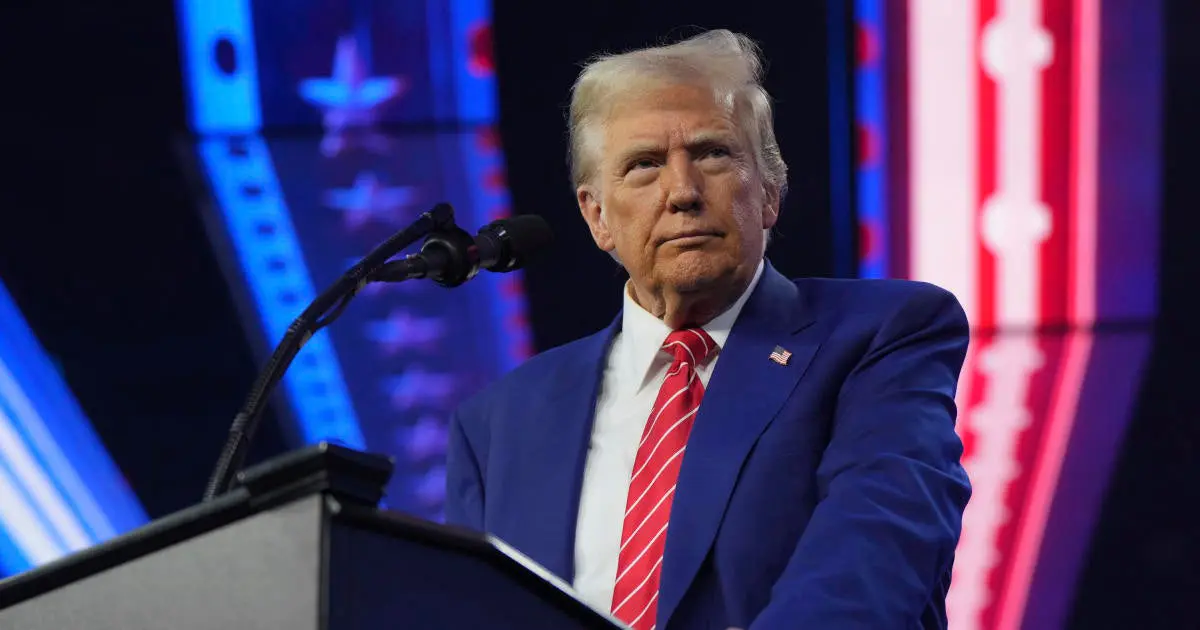
Before President-elect Donald Trump returns to the White House he will return to the courthouse, a New York judge ruled Friday.
Justice Juan Merchan will sentence Trump for his crimes on Jan. 10 — just 10 days before his inauguration on Jan. 20 — in a court proceeding that will be unlike any in America's 248 years. Trump's conviction in New York stemmed from a $130,000 so-called "hush money" payment his then-attorney, Michael Cohen, made to adult film star Stormy Daniels in the days before the 2016 election.
Justice Juan Merchan's ruling ends two months of speculation — and back and forth jockeying by Trump's attorneys and prosecutors for Manhattan District Attorney Alvin Bragg — following Trump's narrow election victory on Nov. 5.
Trump became the first former president ever convicted of crimes in May, when a unanimous jury found him guilty in the New York case. Sentencing in the case was stalled for months as Trump campaigned for a return to the presidency. In November, he became the first person voted into the White House after a criminal conviction.
The president-elect had argued in a motion to dismiss that his ascension to the White House mandated his conviction be vacated. Merchan said Friday that it did not.
"This court finds that neither the vacatur of the jury's verdicts nor dismissal of the indictment are required by the Presidential immunity doctrine, the Presidential Transition Act or the Supremacy Clause," Merchan wrote in his order Friday.
Merchan indicated in his ruling that Trump will not be sentenced to serve time behind bars. He wrote that prosecutors agree with this decision. He also said that Trump may appear virtually, rather than in person for the sentencing.
"It seems proper at this juncture to make known the court's inclination to not impose any sentence of incarceration, a sentence authorized by the conviction but one the (prosecutors) concede they no longer view as a practicable recommendation," Merchan wrote.
Trump's lawyers claimed the constitutional demands on a president-elect "superseded" the jury's decision and ongoing proceedings in the case.
Bragg's office argued that the judge had a range of options, including "novel" ones to balance the interests of justice with the unprecedented circumstance of a convicted defendant being elected to the presidency before sentencing. Their suggestions included postponing proceedings until after Trump's term in office, and even terminating the case and its proceedings with a note that the verdict had not been set aside.
Merchan said Trump's own motion to dismiss acknowledged that a president-elect is not entitled to immunity from criminal proceedings.
"Undoubtedly, the transition period between election and the taking of the presidential oath is one filled with enormous responsibility," Merchan wrote. "Yet, even (the) defendant in his motion refers to presidential immunity as one relating specifically to a sitting president no fewer than 33 times."
Trump's conviction carried with it the potential for up to four years in jail, but also a wide range of alternatives to incarceration, including probation and fines.
Merchan said in his ruling that after Trump's victory, his attorneys' rhetoric changed from "spirited" to "dangerously close to crossing the line."
"Counsel has resorted to language, indeed rhetoric, that has no place in legal pleadings. For example, countless times in their motion to dismiss, counsel accuses the prosecution and this court of engaging in 'unlawful' and 'unconstitutional' conduct," Merchan wrote.
Merchan cited a recent report by the Supreme Court's chief justice that warned about elected leaders undermining the judiciary
"Viewed in full context and mindful of the parties to this action, such arguments, in the broader picture, have the potential to create a chilling effect on the third branch of government," Merchan wrote.
Despite Merchan's excoriation, Trump communications director Steven Cheung did not hold back in a statement on the ruling. He called the case a "witch hunt" and Merchan "deeply conflicted."
"This lawless case should have never been brought and the Constitution demands that it be immediately dismissed," Cheung said.
Merchan's decision is the latest in a string of historical firsts set by the case. Trump's indictment in March 2023 made him the first former president in U.S. history to be criminally charged. He was subject to a seven-week trial this spring, which took place during the Republican presidential primaries.
Inside the courtroom, Trump grumbled quietly, but often leaned back in his chair with his eyes closed as prosecutors and lawyers questioned more than 20 witnesses. At times his head drooped down, as he apparently dozed off. In the hallway just outside the courtroom — surrounded by a rotating posse of Republican allies, lawyers and Secret Service agents — Trump seethed about the case while campaigning to a gaggle of press cameras.
At times, his dual commitments to the court and the cameras caused trouble. Merchan held Trump in contempt 10 times for violating a gag order prohibiting public statements about potential jurors, witnesses and others.
Witnesses, beginning with former National Enquirer publisher David Pecker, described two schemes at the core of the case. The first was a plan hatched by Trump, Pecker and former attorney Michael Cohen to "catch" stories or allegations that might hurt Trump's 2016 presidential candidacy and "kill" them by paying people in exchange for nondisclosure agreements. Pecker and others described three such arrangements, known as "hush money" payments.
Days before the election, Cohen paid $130,000 to adult film star Stormy Daniels — also a witness in the trial — in exchange for her silence about an alleged sexual encounter with Trump in 2006. He and another witness described Trump's relief that voters didn't learn of the story before the election.
Cohen also described an arrangement in which he was covertly reimbursed for the payment to Daniels. The jury concluded Trump, while president in 2017, authorized a scheme to falsify business records in order to conceal Cohen's repayment. That scheme ultimately included 34 falsified records connected to monthly installments portrayed as payments for ongoing legal services, when they were in fact Cohen's reimbursements for the Daniels payoff.
The jury took less than two days to reach its verdict. Trump, who had frequently stared at the jury of his peers during the trial, would not make eye contact with them as his sentence was pronounced.
He looked straight ahead as the jury's foreperson pronounced Trump guilty 34 times, and as Merchan thanked the jury for their service before allowing them to file out of the room.
After Merchan himself stepped out, Trump rose, frowning deeply, and briefly grasped his son Eric's hand.
Trump led his entourage out of the courtroom, huddled for a moment with his lawyers, and then turned to address the cameras awaiting his reaction.
He proclaimed his innocence, raged against the case and returned to his campaign for president.
Judge sets Trump’s sentencing in hush money case for Jan. 10, but signals no jail time
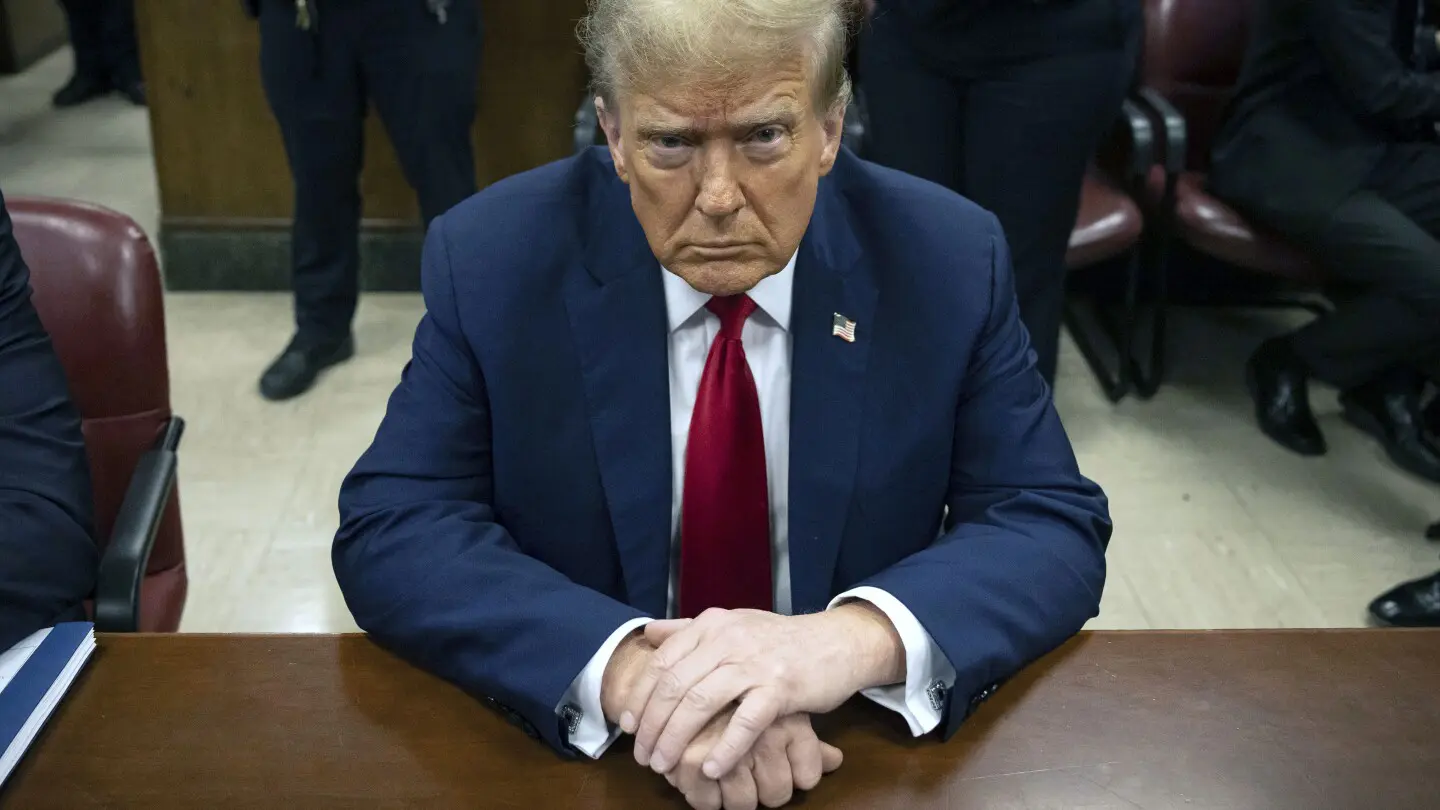
NEW YORK (AP) — In an extraordinary turn, a judge Friday set President-elect Donald Trump’s sentencing in his hush money criminal case for Jan. 10 — little over a week before he’s due to return to the White House — but indicated he wouldn’t be jailed.
The development nevertheless leaves Trump on course to be the first president to take office convicted of felony crimes.
Manhattan Judge Juan M. Merchan, who presided over Trump’s trial, signaled in a written decision that he’d sentence the former and future president to what’s known as an unconditional discharge, in which a conviction stands but the case is closed without jail time, a fine or probation. Trump can appear virtually for sentencing, if he chooses.
Rejecting Trump’s push to dismiss the verdict and throw out the case on presidential immunity grounds and because of his impending second term, Merchan wrote that only “bringing finality to this matter” would serve the interests of justice.
He said he sought to balance Trump’s ability to govern, “unencumbered” by the case, against other interests: the U.S. Supreme Court’s July ruling on presidential immunity and the public’s expectation “that all are equal and no one is above the law,” and the importance of respecting a jury verdict.
“This court is simply not persuaded that the first factor outweighs the others at this stage of the proceeding,” Merchan wrote in an 18-page decision.
Trump lashed out at Merchan on his Truth Social platform Friday, writing that it “would be the end of the Presidency as we know it” if the judge’s ruling is allowed to stand.
He repeated his claims that the case was an “illegitimate political attack” and “nothing but a Rigged Charade” perpetuated by Manhattan District Attorney Alvin Bragg, a Democrat. He didn’t elaborate on potential next legal moves.
Bragg’s office declined to comment on Merchan’s ruling.
Former Manhattan Judge Diane Kiesel said the ruling can’t be appealed under New York law, but Trump nonetheless might try to appeal it. In any event, he can appeal his conviction — a step that can’t be taken until he is sentenced — but he won’t be able to pardon himself. Trump’s case was tried in state court, but presidential pardons only apply to federal crimes.
Trump takes office Jan. 20 as the first former president to be convicted of a crime and the first convicted criminal to be elected to the office.
The Republican was found guilty in May of 34 counts of falsifying business records.
The charges involved an alleged scheme to hide a hush money payment to porn actor Stormy Daniels in the last weeks of Trump’s first campaign in 2016. The payout was made to keep her from publicizing claims she’d had sex with the married Trump years earlier. He says that her story is false and that he did nothing wrong.
The case centered on how Trump accounted for reimbursing his personal attorney at the time, Michael Cohen, for the Daniels payment. Cohen on Friday called Merchan’s decision to go ahead with the sentencing “judicious and appropriate.”
The conviction left Trump, 78, facing the possibility of punishment ranging from a fine or probation to up to four years in prison. His sentencing initially was set for last July 11, then postponed twice at the defense’s request.
Then, after Trump’s Nov. 5 election, Merchan delayed the sentencing again so the defense and prosecution could weigh in on the future of the case.
Trump’s lawyers urged Merchan to toss it. They said it would otherwise pose unconstitutional “disruptions” to the incoming president’s ability to run the country.
Prosecutors acknowledged there should be some accommodation for his upcoming presidency, but they insisted the conviction should stand.
They suggested various options, such as freezing the case during his term or guaranteeing him a no-jail sentence. They also proposed closing the case while formally noting both his conviction and his undecided appeal — a novel idea drawn from what some state courts do when criminal defendants die while appealing their cases.
Merchan ruled that Trump’s current status as president-elect does not afford him the same immunity as a sitting president. Setting the verdict aside and dismissing the case would be a “drastic” step and would “undermine the Rule of Law in immeasurable ways,” Merchan wrote.
Before Trump’s November election, his lawyers sought to reverse his conviction for a different reason: the Supreme Court’s immunity decision, which gave presidents broad protection from criminal prosecution.
Trump was a private citizen — campaigning for president, but neither elected nor sworn in — when Cohen paid Daniels in October 2016. He was president when Cohen was reimbursed, and Cohen testified that they discussed the repayment arrangement in the Oval Office.
The Trump hush money attorneys contended that the jury got some evidence that should have been shielded by presidential immunity. Merchan later rejected that argument, but in the meantime, the election raised new issues.
While urging Merchan to nix the conviction, Trump also sought to move the case to federal court, where he could also assert immunity. A federal judge repeatedly said no, but Trump appealed.
The hush money case was the only one of Trump’s four criminal indictments to go to trial.
Since the election, special counsel Jack Smith has ended his two federal cases. One pertained to Trump’s efforts to overturn his 2020 election loss; the other alleged he hoarded classified documents at his Mar-a-Lago estate.
A separate, state-level election interference case in Georgia is in limbo after an appeals court removed prosecutor Fani Willis from the case.
Trump’s lawyers argued that Smith’s decision to dismiss the federal indictments against Trump should propel a dismissal of the New York hush money case, as well. But Merchan said he found that argument unpersuasive, noting that the hush money case was in a “vastly” different stage.
Associated Press writer Larry Neumeister contributed.
